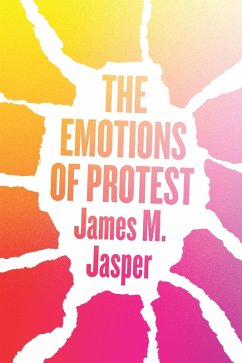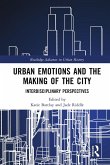In Donald Trump's America, protesting has roared back into fashion. The Women's March, held the day after Trump's inauguration, may have been the largest in American history, and resonated around the world. Between Trump's tweets and the march's popularity, it is clear that displays of anger dominate American politics once again.There is an extensive body of research on protest, but the focus has mostly been on the calculating brain a byproduct of structuralism and cognitive studies and less on the feeling brain. James M. Jasper s work changes that, as he pushes the boundaries of our present understanding of the social world. In The Emotions of Protest, Jasper lays out his argument, showing that it is impossible to separate cognition and emotion. At a minimum, he says, we cannot understand the Tea Party or Occupy Wall Street or pro- and anti-Trump rallies without first studying the fears and anger, moral outrage, and patterns of hate and love that their members feel.This is a book centered on protest, but Jasper also points toward broader paths of inquiry that have the power to transform the way social scientists picture social life and action. Through emotions, he says, we are embedded in a variety of environmental, bodily, social, moral, and temporal contexts, as we feel our way both consciously and unconsciously toward some things and away from others. Politics and collective action have always been a kind of laboratory for working out models of human action more generally, and emotions are no exception. Both hearts and minds rely on the same feelings racing through our central nervous systems. Protestors have emotions, like everyone else, but theirs are thinking hearts, not bleeding hearts. Brains can feel, and hearts can think.
Dieser Download kann aus rechtlichen Gründen nur mit Rechnungsadresse in A, B, BG, CY, CZ, D, DK, EW, E, FIN, F, GR, HR, H, IRL, I, LT, L, LR, M, NL, PL, P, R, S, SLO, SK ausgeliefert werden.




![Cómo Analizar a las Personas [How to Analyze People]: Manipulación y Psicología Oscura + Inteligencia Emocional, TCC y PNL [Manipulation & Dark Psychology + Emotional Intelligence, CBT & NLP] (eBook, ePUB) Cómo Analizar a las Personas [How to Analyze People]: Manipulación y Psicología Oscura + Inteligencia Emocional, TCC y PNL [Manipulation & Dark Psychology + Emotional Intelligence, CBT & NLP] (eBook, ePUB)](https://bilder.buecher.de/produkte/60/60816/60816910m.jpg)




